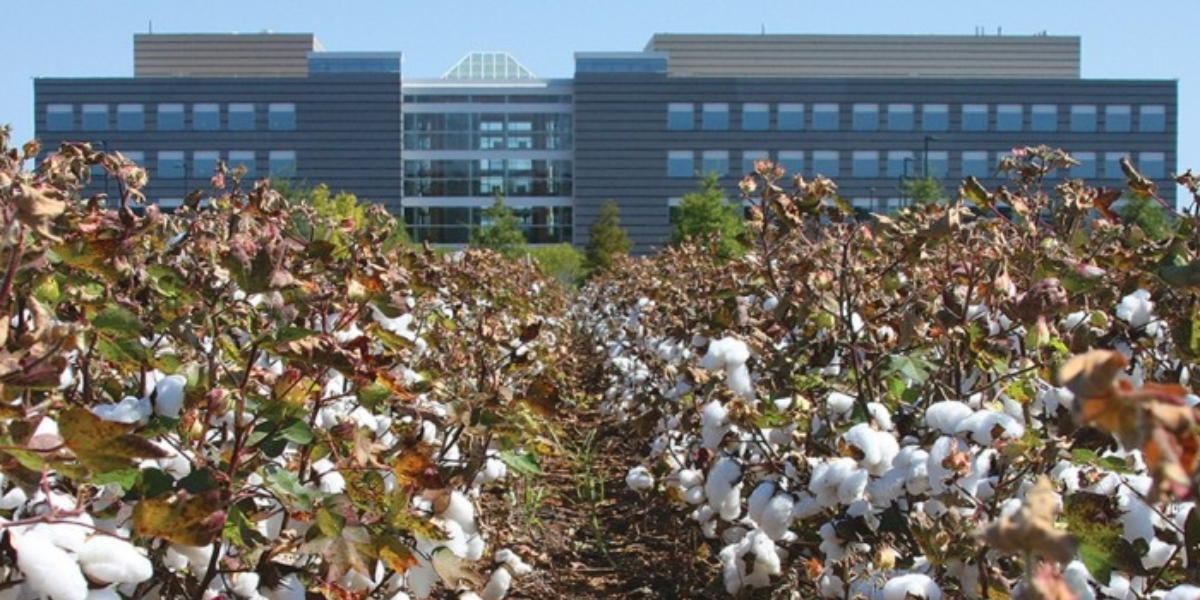Alabama Governor Kay Ivey has awarded HudsonAlpha Institute for Biotechnology over $2 million through the Alabama Research and Development Advancement Fund to support three initiatives using biotechnology to strengthen Alabama’s agriculture and forestry sectors.
Auburn University and the University of Alabama also received funding in this round. ADECA made the full list of awards available on Monday.
“Researchers at these institutions have a track record of forging innovations that improve people’s lives in Alabama and beyond,” Gov. Ivey said.
“Their far-reaching research impacts everything from the next wave of technology to the conservation of our forests. I am proud to support this important and pioneering work through these grant awards.”
Each HudsonAlpha project combines state investment with matching funds from the Institute, collaborating organizations, federal grants, and private donors. This funding model multiples the value and impact of these public funds while strengthening Alabama’s innovation ecosystem.
TRIALS (Technology & Research for Innovation Ag Leaders) – $309,576
In collaboration with agtech startups Chonex and SouthGen Solutions, TRIALS is a two-year pilot program led by HudsonAlpha in Alabama’s Wiregrass region, designed by HudsonAlpha Faculty Investigator Josh Clevenger, PhD. TRIALS focuses on accelerating the on-farm adoption of new agricultural technologies. Farmers often face narrow profit margins and environmental uncertainty, making it a risky endeavor to test new products. TRIALS addresses the challenge by pairing growers with researchers and agtech companies to conduct side-by-side field trials, tracking yields, soil health, and economic outcomes.
The project will evaluate innovations such as Chonex’s StrongSoil® bio-fertilizer and SouthGen’s precision agriculture tools and drone imaging, generating real-world data that growers can use to guide their decisions. In addition to boosting productivity in Alabama’s $211 million peanut industry, the project will provide education and outreach through farmer consultations, producer panels, and a summer BioTrain internship. TRIALS aims to create a scalable model that supports small to mid-sized farms and helps rural communities benefit from the next generation of agtech solutions.
Biotech to Accelerate Crops for Alabama – $938,992
This $1.87 million initiative, led by HudsonAlpha Faculty Investigator Kankshita Swaminathan, PhD, with support from ADECA and matching funds from partners including Mars Inc. and the Center for Advanced Bioenergy and Bioproducts Innovation (CABBI, funded by the Department of Energy), leverages advanced plant genetics and biotechnology to strengthen Alabama’s agricultural economy. The project focuses on developing plant transformation technologies that enable researchers to produce improved crop varieties adapted to local environments. These new technologies will create opportunities for farmers to adopt crops designed for greater resilience, yield, and sustainability, addressing both current market crops and future alternatives.
Beyond its R&D goals, the project invests in building Alabama’s scientific workforce through experiential learning for high school, undergraduate, and postbaccalaureate students. Programs like the Genes & Greens summer academy and hands-on research experiences expose students to plant science, biotechnology, and real-world laboratory skills. By combining innovation, workforce training, and business engagement, this project positions Alabama as a hub for agricultural bioscience and agtech entrepreneurship.
Safeguarding Alabama Wild Forests – $999,803
In partnership with the Paint Rock Forest Research Center in Jackson County, this $2 million project brings together one of Alabama’s most comprehensive natural forest studies with HudsonAlpha’s expertise in plant genomics to secure the future of the state’s multi-billion-dollar forestry industry. Led by HudsonAlpha Faculty Investigator Jeremy Schmutz, researchers in the HudsonAlpha Genome Sequencing Center will analyze the genetic diversity across at least 10 tree species as a pilot for up to 90, including elms, ash, black walnut, and shortleaf pine, to identify traits that can boost forest resilience to pathogens, pests, and environmental change. The project also aims to develop valuable germplasm resources for use in regional tree breeding programs that promote sustainability across the Southeast.
The Paint Rock site, spanning the Cumberland Plateau into the Paint Rock Valley, provides a living laboratory for studying genetic variation in native forests. With a 50% local match from HudsonAlpha and Paint Rock Forest Research Center, the project supports forest-based small businesses and landowners while establishing Alabama as a national leader in conservation genomics and forest biotechnology.
“These grants represent a powerful vote of confidence in HudsonAlpha’s ability to drive innovation through collaboration,” said HudsonAlpha President Neil Lamb, PhD.
“We are deeply grateful for the State’s support and for the visionary partners and donors whose matching investments make these transformative projects possible. Together, we are advancing a more sustainable, resilient, and prosperous future for Alabama’s farmers, foresters, and communities.”
Courtesy of HudsonAlpha.













